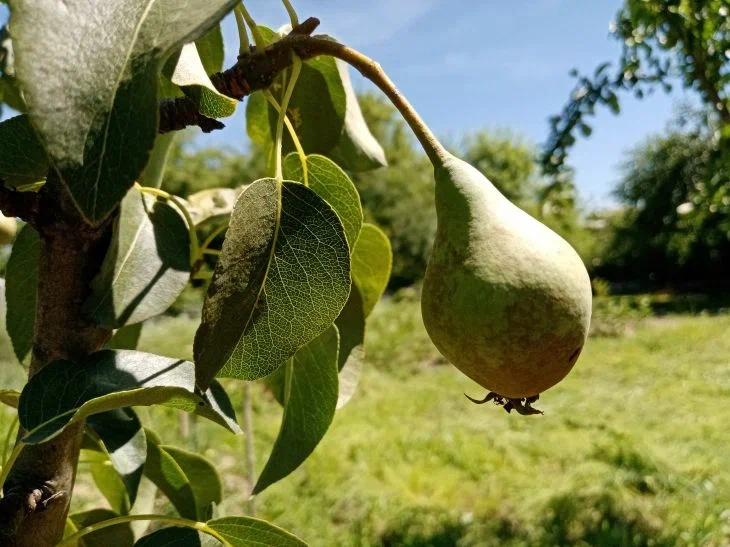Pears, due to their high content of vitamins and minerals, have a wide and beneficial effect on both health and beauty.
The main properties of pear include: lowering blood pressure, preventing constipation and accelerating skin regeneration processes.
Pear - nutritional value
Pears are a source of many nutrients. They contain a large amount of minerals: potassium, copper, sodium, magnesium, iodine, calcium and iron.
In addition to minerals, pear is a valuable source of many vitamins: B vitamins, vitamins A, C and PP. It also contains organic acids such as malic and citric acid.
In addition, pears contain carbohydrates, pectins, fiber and essential oils. Pears are also low-calorie fruits, 100 g of this fruit contains only 50 kcal. Therefore, they can and should be consumed by everyone, even those on a diet.

The health benefits of pears were discovered many years ago. Due to the presence of stone cells in the pulp of pears, intestinal peristalsis improves and constipation is prevented. However, you should not overdo it with them, as they can cause diarrhea if consumed in excess.
Pear is also useful for urinary tract diseases and kidney stones. The juice contained in these fruits effectively reduces blood pressure and affects the condition of blood vessels, thickening their walls.
When applied externally, it accelerates skin regeneration processes.
Due to the high mineral content, pears have a positive effect on the functioning of the brain. Eating these fruits is recommended for people at risk of developing osteoporosis, as it prevents the loss of calcium in the body. In addition, pears are an excellent source of iodine, which has a beneficial effect on the functioning of the thyroid gland.
Pear - Health Effects
Due to the high potassium content, muscle function, concentration and nervous system function are improved.
Thanks to copper, pears have a positive effect on memory and help you absorb knowledge faster.
Antioxidants found in pears have anti-cancer effects.
The fiber contained in pears improves digestion and prevents constipation.
Malic acid is useful for kidney stones and urinary tract diseases.
Pears have anti-inflammatory properties. For this reason, they are recommended for use against colds or other infections.
Pear juice speeds up wound healing. You can use it as a compress on irritated skin.
Pectin present in pears effectively reduces blood pressure and cholesterol levels.
Iodine, which is part of the pear fruit, replenishes its deficiency in diseases such as hypothyroidism.
Pear is a source of quercetin, which has a preventive effect, preventing the occurrence of Alzheimer's disease.
Pear is also very useful for vision. When consumed regularly, it reduces the risk of macular degeneration.
Due to the vitamin C content, pear improves the appearance of the skin, strengthening the walls of blood vessels. This prevents the appearance of spider veins.
Pear - Why You Should Eat It
Pears are an easily digestible fruit, so you don’t have to worry that eating them will cause discomfort in the digestive system. On the contrary, the so-called stone cells present in the parenchyma accelerate intestinal peristalsis and prevent constipation.
In addition, pears are low in calories, so they can be eaten by everyone. The wide impact of these fruits on health is the key motive for including them in your daily diet.
Pears can be eaten raw as a healthy snack throughout the day. They are also used for various types of preserves - juices, compotes or jams. They can be a healthy addition to fruit salads, hot dishes or desserts.
Earlier we talked about which diet reduces the risk of contracting coronavirus .








